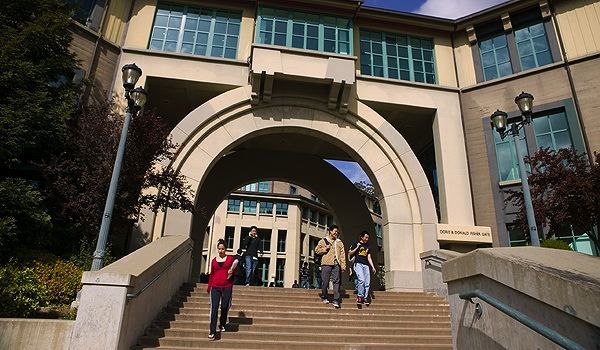It’s not very often that a top-tier business school gets an opportunity to overhaul its curriculum, design new courses, scrub a few others and rebrand itself, but that’s exactly what’s happened when University of California Berkeley-Haas parted ways with Columbia Business School to end the Berkeley-Columbia Executive MBA program in February 2012.
The split resulted in two new programs: the Berkeley MBA for Executives and Columbia’s EMBA-Americas Program. The revised Berkeley curriculum marks Haas’ first stab at running an independent EMBA program. The school scrapped the old syllabus and incorporated the results of multiple studies, focus groups and faculty and alumni interviews. The result? A 19-month program that blends traditional coursework with intensive units in innovative leadership and several off-site excursions for a $149,000 price tag.
‘WE’VE BEEN SAYING THIS IS OUR 11TH CLASS’
Jon Kaplan, executive director of Haas’ executive and part-time programs, prefers to think of the school’s solo turn at the EMBA as a continuation of the Berkeley-Columbia program. “We’ve been saying this is our 11th class,” he says, referring to the 10 classes and some 600 alumni from the joint program with Columbia. However, Berkeley’s EMBA team isn’t shy about announcing some major changes. “We obviously took some of the best parts of what we had before and integrated those into what we’re doing now,” Kaplan says. The schedule is one of the few components that hasn’t changed. Students will continue to meet every third week from Thursday through Saturday at the Berkeley campus.
One of the biggest changes will be the introduction of an off-site class series that emphasizes innovative thinking and leadership. “We said, ‘Okay what can we do to make this program different and special,'” Kaplan recalls. We had to think outside the box to bring our EMBA students the same experiential learning opportunities as our fulltime and part-time programs, he adds. So in addition to the standard MBA courses, such as Financial Accounting and Marketing Strategy, students will take a progression of intensive, off-site classes specifically designed to develop outside-the-box problem-solving skills.






Questions about this article? Email us or leave a comment below.